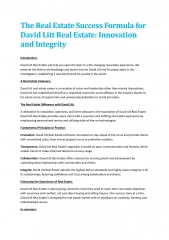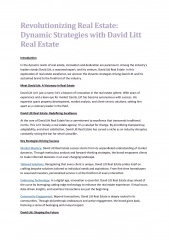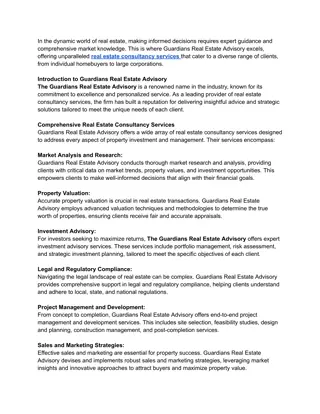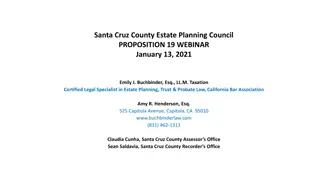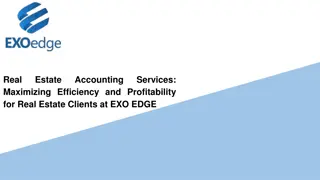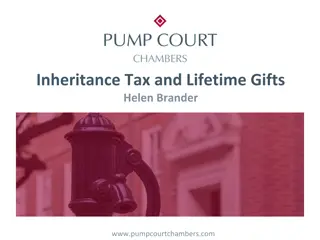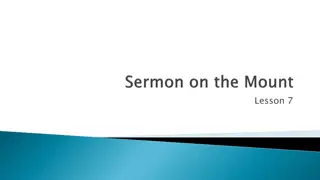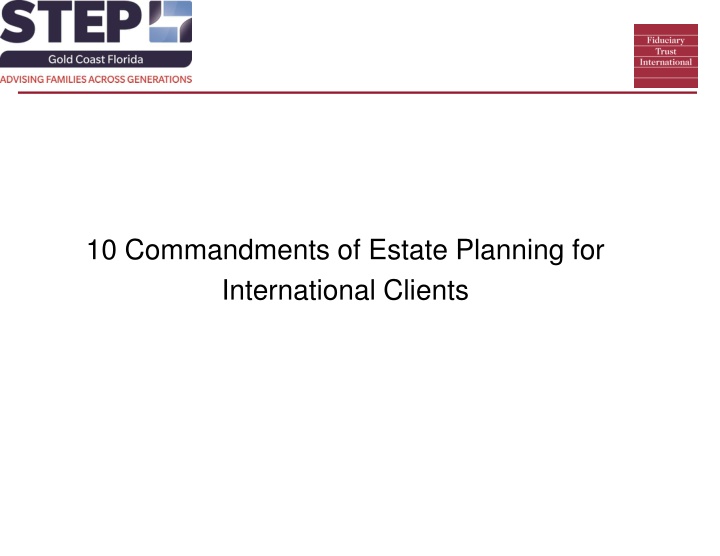
10 Commandments of Estate Planning for International Clients
The rules and considerations for estate planning for international clients, focusing on US gift and estate taxes, asset subjects, and the use of trusts to transfer wealth to US beneficiaries tax-efficiently.
Download Presentation

Please find below an Image/Link to download the presentation.
The content on the website is provided AS IS for your information and personal use only. It may not be sold, licensed, or shared on other websites without obtaining consent from the author. If you encounter any issues during the download, it is possible that the publisher has removed the file from their server.
You are allowed to download the files provided on this website for personal or commercial use, subject to the condition that they are used lawfully. All files are the property of their respective owners.
The content on the website is provided AS IS for your information and personal use only. It may not be sold, licensed, or shared on other websites without obtaining consent from the author.
E N D
Presentation Transcript
10 Commandments of Estate Planning for International Clients
Commandment 1: KNOW THE RULES The US Gift and Estate Taxes and GST are not Unified When it comes to NRAs (Non-Resident Aliens) Assets subject to US estate tax (Section 201, et. seq.): US real estate Shares of stock in a US corporation (US place of incorporation), including US mutual funds Cash Tangible property (except works of art on loan per Code Section 2105(c)). Certain debt obligations of US persons and the US, including political subdivisions (but there is a big exception under Section 2105(b)). Assets not subject to US Estate Tax: Deposits in US banks (and foreign banks for that matter) FDAP* type fixed-income obligations Life insurance proceeds on the life of a non-US person (Code Section 2105(a)). Note that non-US persons still have a lifetime exemption of only $60,000. *(Fixed, Determinable, Annual or Periodic Income) 1
Commandment 1: KNOW THE RULES (continued) The US Gift and Estate Taxes Are not Unified When it comes to NRAs (Non-Resident Aliens) Gift Tax Assets Subject to US Gift Tax: US real estate Tangibles Cash Non FDAP-type US debt obligations Assets not Subject to US Gift Tax Shares in a US corporation exact opposite treatment from US estate tax rules Shares in a foreign corporation US bank deposits GST transfers of non-US situs property by NRAs are not subject to GST 2
Commandment 2: USE A TRUST Non-US Persons Transferring Significant Wealth to US Persons Should Do So in a Trust Not Includible in the US Beneficiary s Estate Key Point: The rules for NRA senior-generation family members are much different than those for US citizen/resident children receiving significant gifts/bequests. Because of the potential US estate tax faced by the US recipients, significant transfers to a US person should be made in a trust not taxable in the US beneficiary s estate. Avoid direct transfers to US persons, which become subject to 40% US estate tax Note that subsequent generations will face a similar tax (by either the estate tax or GST). US persons have a lifetime exemption of $11.58 million (as of 2020). US style planning must be done by NRA transferors in order to ensure maximum US tax benefits for their children and family. Most non-US clients don t understand that there is a future US estate tax impacting transfers to their US children, etc. Non-US clients likewise unaware of US gift tax on future lifetime transfers by a US beneficiary. 3
Commandment 2: USE A TRUST (continued) Non-US Persons Transferring Significant Wealth to US Persons Should Do So in a Trust Not Includible in the US Beneficiary s Estate Trust created during the senior generation s lifetime is typically a foreign grantor trust: Foreign grantor trust rules override US income tax rules to determine US vs. non-US situs: Determination of US v non-US trust income situs depends on control and court tests (Section 7701(a)(30)(E)&(31)): Every trust is presumed to be foreign, unless o Trust is subject to primary jurisdiction by a US Court; and o All substantial trust administration activities are controlled by a US person. The trust for the US persons can be foreign for US income tax purposes and still avoid US estate tax. Beyond scope of this material, but a foreign non-grantor trust accumulating income (so-called Undistributed Net Income or UNI ) can subject the US recipient to up to 100% tax/interest on UNI distributions. Many practitioners avoid foreign non-grantor trusts with a US beneficiary to avoid UNI. An alternate solution to avoid UNI is to maintain master trust offshore and pay current year or Distributable Net Income or DNI (which includes gains) to a US trust (typically in a modern trust jurisdiction such as Delaware). Pre-Immigration Planning consider transfers to irrevocable trusts before US residency status attained. 4
Commandment 3: CHECK THE TREATY US Estate Tax Treaties: They can change the Math, Which Will Change the Planning The US has Estate and/or Gift Tax Treaties with 15 countries. It is critical to understand the details of the treaty to give effective estate planning advice. Treaties are asset specific a fairly detailed balance sheet is needed to apply treaty rules. Some of the treaties have very favorable rules that apply to certain assets owned by citizens/residents of another country. e.g. German residents who own US stocks are not subject to US estate taxation on their US intangibles even though the US estate tax would otherwise cause them to be subject to this tax. Treaties often, but not always, provide credits for transfer tax paid in another country, but this needs to be confirmed in each case/treaty. Practice tip a working knowledge of the treaty and the home country tax is essential to know where to start (a preliminary discussion between counsel in both the US and the home country is often needed to make sure that what would ordinarily be a simple plan is a non-starter in the other country). 5
Commandment 4: WORK WITH HOME COUNTRY LAWYERS US Revocable Trusts Don t Work for Everyone Never assume that even the most benign domestic estate planning technique is effective under foreign law. Under UK law a revocable trust created by a US person, living but not domiciled in the UK, can have very negative UK tax consequences even though the trust is ignored for US tax purposes: If UK situs assets are involved, there can be an immediate tax upon the transfer Unless care is taken to have non-UK trustees, the trust could be subject to UK income/capital gains tax. There are excluded property trusts that can avoid the taxes on non-UK property. Care must be taken to avoid bare trust status which could trigger UK tax and negate the benefits of excluded trust status. Canada/US Trusts are much less efficacious in long-term planning. Trusts with Canadian resident status pay a deemed-sale gain every 21 years. Insurance should be considered for trust funding to avoid local inheritance/income taxes. 6
Commandment 5: REAL ESTATE: PLAN FIRST/CLOSE SECOND NRA Ownership of US Real Estate Interests: Picking Your Poison /US Income taxes or US gift/estate taxes Foreign ownership of US real property is the most common planning issue. Planning tip: The key is to determine how elaborate the plan should be and how willing your client is to pay and adhere to the plan. The key is how long US real estate is intended to be owned: long-term or temporary (i.e., short-term US employment). US real estate is subject to US estate and gift tax (Section 2103). US real estate is also subject to US capital gains tax. Rents are subject to US income tax. Sales of US real property interests by non-US persons are subject to FIRPTA: Effects a 15% withholding tax at closing on gross sales price (could be higher than taxable gain) 7
Commandment 5: REAL ESTATE: PLAN FIRST/CLOSE SECOND (continued) NRA Ownership of US Real Estate Interests: Picking Your Poison /US Income taxes or US gift/estate taxes Clients often have to choose between minimizing/eliminating US transfer tax or US income tax. Capitalizing a foreign company may avoid US estate tax but does not avoid FIRPTA, or the branch-profits tax (Section 884) on sales or income relating to the US real estate that are repatriated to home country. Transferring to a US family member or irrevocable trust is problematic as the transfer is a taxable gift. Consider transferring cash to a US trust that buys the US real estate this avoids future US estate tax and FIRPTA if structured properly but US capital gains may eventually occur. Consider buying life insurance (not a US situs asset under Section 2105(a)). Insurance may be less expensive than a trust, foreign holding company and related formation/maintenance costs 8
Commandment 6: HOW YOU FUND A REVOCABLE TRUST MATTERS Section 2104(b): In my Top 5 of Code Sections not to learn about after the fact Rule # 1 for using revocable trusts for non-US persons: Remember Section 2104(b). Rule #2 is don t ever forget Rule #1!!! Without further ado, Section 2104(b): Revocable transfers and transfers within 3 years of death For purposes of this subchapter, any property of which the decedent has made a transfer, by trust or otherwise, within the meaning of sections 2035 to 2038, inclusive, shall be deemed to be situated in the United States, if so situated either at the time of the transfer or at the time of the decedent s death. Example Non-US client in a country with no US estate/gift tax treaty dies with shares of Deutsche Bank in a revocable trust? Would you think there is a US estate tax? Answer it depends. If the holding was always Deutsche Bank, then there is no US estate tax. If the revocable trust was with Citibank shares which were sold because the client learned that they were includible in his or her estate for US estate tax purposes then DB shares were purchased, these DB shares are includible under Section 2104(b). There is a taint! Planner beware!!! 9
Commandment 7: CASH MAY BE DEEMED TO BE TANGIBLE Funding US Trusts From Abroad: IRS Alchemy Turns an Electronic Transfer into a Tangible Funding an irrevocable US Trust seems straightforward if you know the US situs rules: US real estate is NOT OK. US stock is OK but only for irrevocable trusts. US tangibles are NOT OK. What about cash? Generally currency is a tangible. What about wires? Logic states that a US dollar wire should be an intangible and thus non-US situs. IRS ruled that a check from a non-US person to a US person, cashed in the US, is a gift of a US situs asset many practitioners believe the IRS stance is incorrect. Transfer short-term US Treasuries (maturities of 6 months or less). Consider creating a non-US account in name of US recipient to receive funds outside US. Not subject to US Gift Tax Not subject to US Estate Tax Consider transferring shares of a non-US corporation Early standing practice was to create a non-US bank account in name of US recipient (the trust) to receive funds outside US. In recent years, non-US banks are increasingly reluctant to open non US bank accounts for US persons/trusts. 1 0
Commandment 8: DONT GET CAUGHT IN THE ALPHABET SOUP OF PFIC S & CFC S PFICs, CFCs: Everything You Want to Know about These Foreign Income Anti-Avoidance Rules is about what you should know before using them CFCs, PFICs and PFHCs represent the primary US income tax foreign anti-avoidance tools. Goal is to prevent shifting passive income activity offshore to no or low tax jurisdictions. CFC Status: Controlled greater than 50% by US persons (each must have 10% voting control). There is no passive income requirement unlike PFICs. Attribution rules exist, especially for discretionary trusts. PFIC Status: Either 75% of income is passive, or 50% of its assets are used to produce passive income There is no voting or ownership threshold for PFIC status CFC Controlled Foreign Corporation PFIC Passive Foreign Investment Company 1 1
Commandment 8: DONT GET CAUGHT IN THE ALPHABET SOUP OF PFIC S & CFC S (continued) PFICs, CFCs: Everything You Want to Know about These Foreign Income Anti-Avoidance Rules is about what you should know before using them. PFIC income treatment: Absent a QEF* election, tax is on sale of PFIC interest and taxed as ordinary income, plus interest. QEF election allows taxpayer to pay pro rata share of PFIC income on a current income basis. Under 2017 Tax Act, no longer possible to effect tax-free liquidation of CFC or PFIC. Refreshing basis periodically will help minimal built-in gains. Two-tiered blocker structure can be used cost of this structure is a factor. * QEF = Qualified Electing Fund 1 2
Commandment 9: DONT FORGET THE TOLLS ON THE WAY OUT Expatriation: An Intriguing Idea Until You Come to Section 2801 (the Phantom US Estate/Gift Tax Affecting Covered Expatriates ) Section 877A effective June 17, 2008 applies to individuals who expatriate Individual expatriating is a covered expatriate when expatriation occurs and any one of the following is true: Average net income tax is more than $172k cap (effective 2021 as it is indexed for inflation), or Net worth is greater than $2 million (including trust interests), or Does not certify compliance with US tax laws for the last 5 years. Exceptions may apply to those under 18.5 years of age and certain at birth dual citizens. 1 3
Commandment 9: DONT FORGET THE TOLLS ON THE WAY OUT (continued) Expatriation: An Intriguing Idea Until You Come to Section 2801 (the Phantom US Estate/Gift Tax Affecting Covered Expatriates ) New rules provide for an exit tax on gain as of date of expatriation (Section 877A). Exemption in computing gain will be $744k cap in 2021. Special rules allow for deferrals: Deferrals are allowed for qualified retirement plans but not for IRAs. Cash rich clients or those with high basis assets may not be subject to a significant exit tax. 30% withholding tax is also imposed on distributions to covered expatriates from a foreign non-grantor trust. Section 2801: The Phantom US Estate/Gift/GST Tax: Applies on gifts or transfers at death by a covered expatriate to a US person. Needs to be considered if not all the family members expatriate. 1 4
Commandment 10: AVOID THE STATUTORY EXECUTOR TRAP Section 2203: Likewise on my Top 5 or So that s What a Statutory Executor Is Non-US ownership of US stocks is at an all-time high estimated at 35%. Keep in mind that US stocks held in individual name, without treaty benefit, are subject to US estate tax on amounts exceeding $60k estate exemption. A non-US person with no US connections has no reason to appoint a US executor/personal representative Enter Section 2203: Definition of executor The term executor wherever it is used in this title in connection with the estate tax imposed by this chapter means the executor or administrator of the decedent, or, if there is no executor or administrator appointed, qualified, and acting within the United States, then any person in actual or constructive possession of any property of the decedent. 26 U.S Code 2203, ch. 736, 68A Stat. 401. 1 5
Commandment 10: AVOID THE STATUTORY EXECUTOR TRAP (continued) Section 2203: Likewise on my Top 5 or So that s What a Statutory Executor Is. A US financial firm (bank, trust company, custodian, etc.) has exposure for payment of the US estate tax if it effects the transfer of a US stock owned by a non-US person without following the Treasury procedures. Form 706-NA is required for an estate exceeding $60k cap in order to obtain the transfer certificate. The IRS website states that The time frame for the IRS to process an estate tax return is six to nine months. A transfer certificate will be issued by the Service when satisfied that the tax imposed upon the estate, if any, has been fully discharged or provided for. The tax will be considered fully discharged for purposes of the issuance of a transfer certificate when investigation has been completed and payment of the tax, including any deficiency finally determined, has been made. 1 6
Disclosure Information 1. Not all investments are suitable for all clients. Please consult with your financial, legal and/or tax advisor before investing. This information has been prepared solely for informational purposes in connection with a one-on-one presentation in order to assist you in the review of your investment alternatives and is not for public distribution. This information is as the date indicated, and is not to be construed as investment advice or an offer for a particular security. Our investment strategies and the resulting portfolio holdings may change depending on factors such as market and economic conditions. This information is not a complete analysis of every aspect of any market, country, industry, security or portfolio. Statements of fact are from sources considered to be reliable, but no representation or warranty is made as to their completeness or accuracy. 2. Any reviews, analyses, preliminary findings and proposed strategies set forth in this presentation are based on information that you have provided to us, which we have assumed is accurate and complete, without any independent verification, and certain other assumptions, as indicated. This presentation has been prepared for illustrative and discussion purposes only. Actual findings and recommendations may vary significantly based on the verification of the information set forth herein and any additional information that may be provided. There is no assurance that any intended results and/or hypothetical projections will be achieved. Past performance does not guarantee future results and results may differ over future time periods. 3. When selecting mutual funds as a suitable investment for your account pursuant to its discretionary investment authority, Fiduciary Trust Company International ( Fiduciary Trust ) gives priority to funds under the management of affiliated investment advisers ( Affiliated Mutual Funds ), after comparing any such fund to an unrelated peer group. Fiduciary Trust and its affiliates will receive, and may share, compensation for investment management services from each Affiliated Mutual Fund in which the account invests. These arrangements are described in the prospectus for each such Affiliated Mutual Fund. There are neither sales commissions nor load charges on either the purchase or sale of shares of Affiliated Mutual Funds, nor any redemption fee upon the sale of shares of such Affiliated Mutual Funds. Neither Fiduciary Trust, nor any affiliate, receives any Rule 12b-1 distribution or shareholder servicing fees from any affiliate attributable to investing in any of the Affiliated Mutual Funds. To avoid duplication of fees, Fiduciary Trust excludes the value of your holdings in any such Affiliated Mutual Fund in which you invest from the fee calculation on your account. 4. All investments involve risks, including possible loss of principal. The market values of securities owned by the Fund will go up or down, sometimes rapidly or unpredictably. The Fund's performance depends on the manager's skill in selecting, overseeing, and allocating Fund assets to the sub-advisors. The Fund is actively managed and could experience losses if the investment manager's and sub-advisors' judgment about particular investments made for the Fund's portfolio prove to be incorrect. Some sub-advisors may have little or no experience managing the assets of a registered investment company. Foreign investments are subject to greater investment risk such as political, economic, credit and information risks as well as risk of currency fluctuations. Investments in derivatives involve costs and create economic leverage, which may result in significant volatility and cause the Fund to participate in losses (as well as gains) that significantly exceed the Fund's initial investment. Lower-rated or high yield debt securities involve greater credit risk, including the possibility of default or bankruptcy. Currency management strategies could result in losses to the Fund if currencies do not perform as the investment manager or sub-advisor expects. The Fund may make short sales of securities, which involves the risk that losses may exceed the original amount invested. Merger arbitrage investments risk loss if a proposed reorganization in which the fund invests is renegotiated or terminated. Liquidity risk exists when securities have become more difficult to sell, or are unable to be sold, at the price at which they have been valued. Please see the prospectus and summary prospectus for information on these as well as other risk considerations. 5. This presentation must be preceded or accompanied by a summary prospectus and/or prospectus for each Fund. Please carefully review each prospectus. Investors should carefully consider a Fund's investment goals, risks, charges and expenses before investing. Extent of FDIC Insurance: Securities, mutual funds and other non-deposit investments in your account are subject to investment risk, including possible loss of principal amounts invested, are not deposits or other obligations of, or guaranteed by, Fiduciary Trust, and are not insured by the Federal Deposit Insurance Corporation ( FDIC ) or any other government agency. Cash balances in your Account may be placed on deposit at one or more FDIC-insured banks, including UMB Bank, NA and possibly other Depositories, and, if so, are insured to the maximum extent permitted under the FDIC s general deposit insurance rules in accordance with the Federal Deposit Insurance Act (further details can be found at www.fdic.gov/deposit/).

